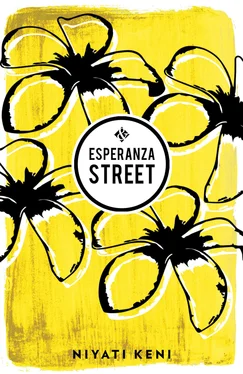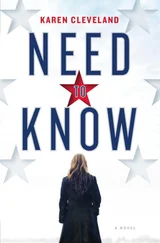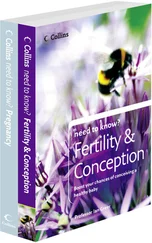Our neighbour’s daughter, Elisa, disappeared for a fortnight once, and when she returned she had new clothes, new shoes, a bag full of music cassettes. Her family’s house seemed quiet for a while after that; there was no celebration of her safe return. Then her father bought a new TV set and things seemed to return to normal. Elisa was sulky after her reappearance, though, and clicked her tongue at me like I was just a stupid baby. I was only a year younger than her and took it badly, avoiding her in spite of her new-found wealth and independence.
Later that same year I got a job bussing tables after school and at weekends at one of the Chinese bars, but it didn’t last for more than a day. A neighbour saw me there, and my father came from the jetty in the middle of the day, a Saturday, and dragged me away by my ear. I’d thought that he, a stevedore who knew the meaning of hard work, would have been pleased. The following weekend he took me to Aunt Mary’s.
The month after my arrival some women came to the house to help in the kitchen. My mother was among them. I’d seen her only twice since I’d left home and I was looking forward to it. She’d grown thin but I didn’t think anything of it; I was young and she was my mother. It was the day before All Saints’ Day and a picnic was to be held in the cemetery the next evening. The cemetery housed Aunt Mary’s family crypt, where Uncle Bobby was buried, and she wanted a roast suckling pig and chicken and all manner of sweets.
My mother interrogated me as she split coconuts with a knife longer than my arm. ‘Have you behaved yourself?’ she said sternly.
I nodded.
‘You’re sure you’ve not given Aunt Mary any cause for complaint?’
I shrugged and said I didn’t think so.
‘I don’t want her thinking ill of our family,’ my mother said. Then, more softly, ‘It’s quiet at home without your hollering.’
Elisa had disappeared for a second time, though she was now back home. Her mother, Bina, had taken to her bed for a week afterwards and had not responded to any of my mother’s enquiries. Elisa’s father was drinking again. My mother didn’t tell me any of this directly. The women discussed it among themselves in soft voices, ignoring me mostly, taking their dismay out on the suckling pig and the chickens as they rubbed in spices and stuffed the skins with herbs.
I loitered, listening to their talk, until America, uncertain how to give me orders in the presence of my mother, set me to cleaning the rice. She was on edge at the intrusion in her kitchen, but enjoying hearing gossip from a part of the neighbourhood that fell outside her usual territory.
‘Poor Bina,’ one of the women said. ‘No one wants to marry a horse.’ My mother’s face tightened. She started talking about another neighbour whose skin had turned silvery and scaly by degrees. The man could recollect no change to his routine, no unusual events. His wife believed he had been cursed by a local woman who worked in the fish market but who everyone knew was a sorcerer. The women seized on this new topic immediately. Several times America and my mother crossed themselves in unison at some new revelation.
They were discussing this when Aunt Mary came into the kitchen to see how things were progressing. She was carrying a bundle of bed sheets. The women paused in their work, if only for an instant; somehow, a pile of laundry still seemed out of place in Mary Morelos’ arms. Aunt Mary had studied a lot but never had to work before the death of her husband. She’d studied piano at a place she called the conservatoire and had been to university in Manila and Paris. After Uncle Bobby died and the well-wishers had drifted away, the reality of keeping the house emerged. She had Vincent, her old houseboy, but the added work when it became a guest house was too much for him and America alone. Bit by bit Aunt Mary learned, and she wasn’t afraid of the work, though in front of certain people she preferred not to be seen doing it. For this reason, the women spoke about her in a different tone than the one they used for the women of the other big households at the top of Esperanza Street.
The women stopped talking now, though they continued to sing at intervals as they worked. Aunt Mary walked through the kitchen and into the laundry room at the back. ‘He was so handsome,’ one of the women said. The others, including my mother, exchanged glances and smiled down at the meat and the piles of scraped coconut. My mother threw me a warning look. I was too young then to guess the colour of the story. Aunt Mary was already thirty when she married Captain Bobby Morelos, and even then she was plump, with a round, plain face. Uncle Bobby was much younger and beautiful to look at, a favourite among the young ladies of the neighbourhood, but bar his navy commission and the clothes he wore, had little to offer. Of course I never heard any of this from Aunt Mary herself. She always remained tight-lipped about private matters.
When Aunt Mary came back into the kitchen the women fell silent again. I was sitting on the floor, sifting the rice for stones. She watched me for a while. Then, to my mother, she said, ‘I’ve interrupted your discussion.’
‘One of my neighbours is sick,’ my mother said. ‘Nothing unusual.’
The women nodded, smiling at Aunt Mary. Aunt Mary looked relieved. ‘I trust you and your families are all well,’ she said.
‘Yes, ma’am,’ my mother said, the unofficial spokeswoman.
Aunt Mary inspected the suckling pig and the row of stuffed chickens. ‘On schedule?’ she said, to no one in particular.
‘Ahead, if anything,’ my mother replied.
The women stood back to let Aunt Mary examine the food. They were all from families that had some connection with her, though not by blood or marriage. Perhaps she’d lent them money once or used her influence for them in some way. Their help today and on other days like it was a part of whatever bargain had been struck. From that time on, the existence of a connection with her, though never the details of it, was happily and widely acknowledged by these women, whose level otherwise was understood by both sides to be far below Aunt Mary’s own.
Aunt Mary sniffed the air. It was heavy with the smell of garlic and onion. ‘When the sheets are done,’ she said to me, ‘hang them outside.’ Aunt Mary usually preferred the guest house laundry to be hung indoors, invisible to the town. ‘Yes, ma’am,’ I said, to impress my mother. A nod was usually sufficient acknowledgement for Aunt Mary; there was something about her home that encouraged silence. Even my mother and her friends were not raucous here like they might have been elsewhere.
Aunt Mary smiled at my mother and left; it was well known that she didn’t enjoy neighbourhood gossip and so no one was offended.
The conversation foundered now as little remained to be done. Before she left, my mother said, ‘I hope you’re taking care to wash your privates properly.’ I wish she hadn’t, for it turned out to be the last thing she ever said to me. As the rest of the town worked excitedly through All Saints’ Day to prepare for a night of festivity, my mother started bleeding and less than a week later she was dead.
I hadn’t been established long enough at Aunt Mary’s to find it strange when my father came to collect me unexpectedly in the middle of the week. He waited in the sala while Aunt Mary called me in from the yard. I had barely started my chores and came into the room dragging the broom behind me to find him perched on the very edge of a chair by the doorway, nervously rubbing the back of his head with one hand and holding his cap in the other. I thought he might have been sitting that way, the chair taking hardly any of his weight, because he wanted to leave as quickly as he’d come, or because he couldn’t make up his mind whether to sit or stand. I realised later, when I thought back over the day, that it was because he was afraid of dirtying the chair, as if the marks of a hard job at the jetty shouldn’t be left in a house like this; I remembered also how he’d stood just outside the edge of the rug the day he first brought me here.
Читать дальше












